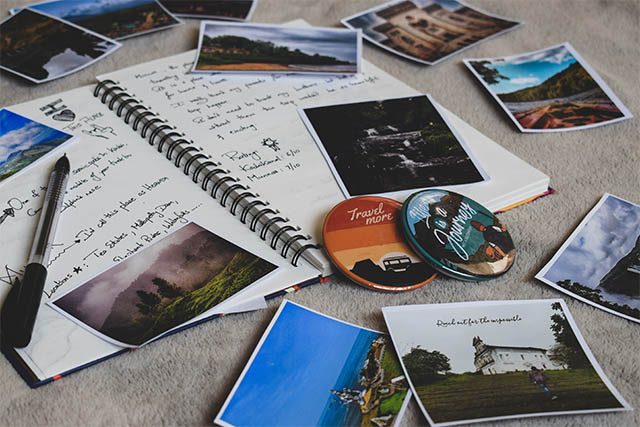In Charles Dickens’ famous 1843 ghost story, A Christmas Carol, Ebenezer Scrooge is visited by the Ghosts of Christmas Past, Christmas Present and Christmas Yet to Come.
However, we do not need supernatural powers or a ghostly escort to travel in time to holidays past, present and future, at least not in our minds.
The ability to remember our past and imagine our future relies on the uniquely human gifts psychologists call retrospective and prospective memory.
What memories are we thinking of as we head towards a holiday season unlike any we’ve had before? What memories will we think back on when our break is over? Will we recall our COVID Christmas fondly or will we hope to put 2020 behind us?
What use is memory anyway?
Memory serves many important psychological and social functions. It helps us navigate everyday situations, such as remembering gifts we need to buy or where we’ve parked our car in a crowded shopping center. It helps define who we are as people, our values, rituals and beliefs. It allows us to learn from the past, then predict and navigate the future. Finally, it helps shape and deepen personal and social bonds with friends, families and communities.
For many people, holidays are a time when we do our favorite things — holiday rituals, family traditions, longed-for getaways — the kinds of things we’ve always done at this time of year.
We organize our life stories — our autobiographical memories — according to reliable patterns of life events or “life scripts”. But this year, we can’t do some things in the same way. We can’t travel to all the places we usually would; family and friends might not be able to visit; and important events may be postponed or restricted.
The good news is any new rituals, traditions or holiday experiences we adopt this year may be especially memorable and meaningful. That’s because we’re particularly likely to remember novel, rather than routine, events.
For instance, in ten years’ time, we may be more likely to remember the holiday season when we shared embarrassing family stories via Zoom than ten years of “normal” Christmases before or after.
Memory builds resilience
Of course, these holidays will still have their challenges. We might be inclined to forget 2020 and our summer break entirely. But there is value even in memories of stressful events.
In a trial published earlier this year, Macquarie University psychologist Monique Crane and her colleagues asked people over 50 to reflect on stressful or challenging events during a busy Australian Christmas period in 2018.
In this type of reflection, known as guided self-reflection, the researchers asked study participants to recall stressful experiences and then analyze what happened and how they behaved. People in the study were also asked to consider how they would tackle a similar situation in the future.
The researchers found self-reflection led people to rate themselves more resilient (agreeing with questions like “I tend to bounce back quickly after hard times”), and feeling less stressed and more positive during the previous two weeks. This is compared to people in a control group, who talked about resilience but did not recall and reflect on their own experiences.
In other words, stressful events during Christmas became an opportunity for positive growth when people reflected on memories of their experiences and used them as building blocks for more resilient responding in the future.
Benefits of remembering together
Whether good or bad events, the very act of recalling memories delivers other important benefits when we remember together. Across a series of studies, my colleagues and I show talking with family and friends about life events supports or “scaffolds” individual memories.
In a study published earlier this year, we arranged for families of mothers, fathers and their two primary school-aged children to complete a Halloween-themed obstacle course in a park.
A few weeks later we asked them to reminisce about this event in mother-child, father-child and sibling-sibling pairs. Although mothers and fathers were most successful in helping their children to remember, even our littlest participants asked questions and offered their own memories in ways that encouraged and supported their memory partner’s recall.
Remembering together is just as valuable, perhaps more so, as we age and if our memories start to fade. In a second study, we asked long-married couples — people married on average for 50 years — to recall their wedding day. We first asked husbands and wives to remember separately. A week later, we asked them to remember together. Couples recalled many new details when they remembered collaboratively compared to alone.
Remembering together strengthens personal and social connections. In a year that has challenged these connections and isolated many of us, telling stories and sharing memories with our loved ones — even of these difficult and unusual times — may support and protect both our psychological and cognitive health.![]()
Amanda Barnier, Pro Vice-Chancellor (Research Performance) and Professor of Cognitive Science, Macquarie University. This article is republished from The Conversation under a Creative Commons license. Read the original article.










